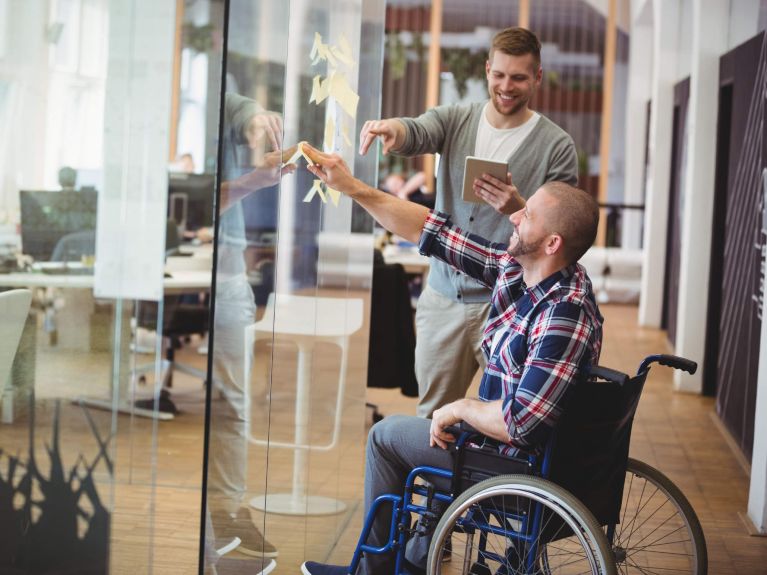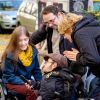How Germany is making inclusion possible
Inclusion means allowing everyone to take part. Participation is not only the goal of but also a prerequisite for democracy. The role of inclusion in Germany

The Disability Rights Movement and Article 3 of the Basic Law
In the 1960s and 1970s, more and more people with a disability began fighting against exclusion. Ernst Klee and Gusti Steiner provided important impetus, using courses at adult education centres and campaigns to raise awareness of the problems involved in “coping with the environment”. For the first time, the everyday barriers to people with disabilities were widely discussed in the public domain. This was followed by campaigns launched by various groups during the UN International Year of Disabled Persons in 1981. The long battle for equality and inclusion led in 1994 to an amendment of Germany’s constitution, the Basic Law. Article 3, paragraph 3 had the following clause added: “No person shall be disfavoured because of disability.”
The UN Disability Rights Convention
In 2009, Germany ratified the Convention on the Rights of Persons with Disabilities (CRPD) that had been adopted by the General Assembly of the United Nations. According to the UN CRPD: Inclusion of persons with disabilities is a human right. The Convention has legal force in Germany and must be implemented by all government agencies. The Federal Ministry of Labour and Social Affairs is the ministry responsible.
Inclusion in the Sustainable Development Goals
Germany is involved with numerous measures in the 2030 Agenda. The word “inclusion” is explicitly mentioned in several of the 17 Sustainable Development Goals adopted by the United Nations. Among the goals to which the 193 member states of the UN General Assembly have signed up are inclusive education for all, designing inclusive cities and communities, and inclusive institutions and societies.
Germany’s Federal Act on Participation
The Federal Act on Participation is a raft of laws that are entering into force in several stages, a process that will be completed in 2023. Its goal is to create more opportunities for participation and more self-determination for people with disabilities. This includes participation in working life, in education and in the social sphere. Specifically, this relates to aspects such as further education and training, individual advice, integration help and payment of costs.


